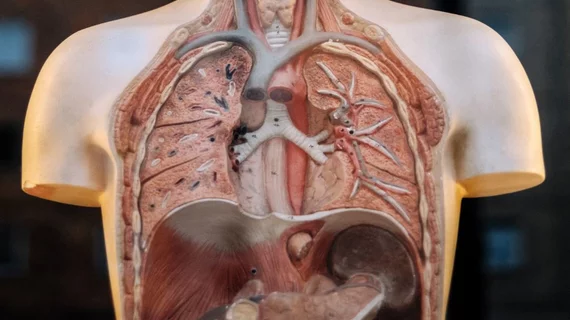Lung cancers efficiently identified, characterized with novel AI approach
Researchers at the State University of New York at Stony Brook have demonstrated a deep-learning algorithm that can quickly diagnose early-stage lung cancer on CT scans by combining computerized self-trained tumor identification with engineered identification of specific tumor features such as texture.
Jerome Liang, PhD, and colleagues had their work published online Nov. 15 in the Journal of X-Ray Science and Technology.
The team designed its novel computer-aided detection (CADe) model to improve on previous deep-learning approaches that have relied on self-learning alone. This, the authors noted, may only go so far due to the complexity of CT lung images as well as the limited availability of complete imaging datasets.
To get past these hurdles, they incorporated their CADe system with expert-level ability to spot “engineered features” that have been widely studied.
Testing their methodology on 208 patients with at least one juxtapleural nodule in the public Lung Image Database Consortium image collection, Liang and colleagues found they’d achieved a sensitivity of 88 percent with 1.9 false positives per scan and a sensitivity of 94.01 percent with 4.01 false positives per scan.
“We [have] proposed a novel nodule CADe which aims to relieve the challenge by the use of available engineered features to prevent convolutional neural networks (CNN) from overfitting under dataset limitation and reduce the running-time complexity of self-learning,” Liang and co-authors wrote. “The methodology shows high performance compared with the state-of-the-art results, in terms of accuracy and efficiency, from both existing CNN-based approaches and engineered feature-based classifications.”

